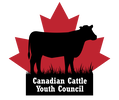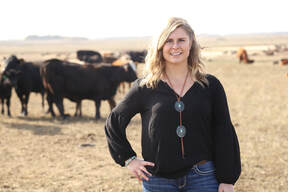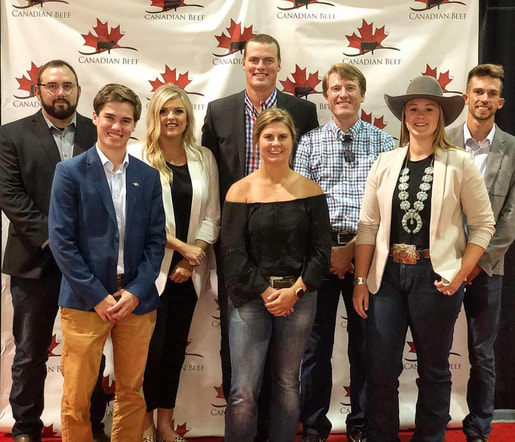|
The Food Policy Committee held a meeting on March 11, 2020 during the Canadian Cattlemen’s Association (CCA) AGM in Ottawa and is the newest committee underneath the CCA board. The committee is currently working on setting the direction of the committee and finding issues that it can act on.
The CCA staff member that oversees the Food Policy Committee is Jennifer Babcock. The main issues the Food Policy committee has commented on is the front-of-pack labelling for ground beef, infringement on the branding of plant-based protein compared to beef and Canadian Food Inspection Agency (CFIA) regulations on alternative proteins labelling. The front-of-pack labelling raises concern that ground beef sales may be impacted, as Health Canada is wanting to put warning labels on ground beef that it contains high amounts of saturated fats. The committee feels it is vital the CCA keep lobbying to ensure that ground beef is exempt from this regulation due to it being a whole food that is not processed and has a positive nutritional benefit. However, implementation of this regulation has been delayed due to the COVID-19 pandemic. The labelling of alternative proteins has also been a concern of the Food Policy Committee, specifically, that labelling may mislead consumers. Thus, CCA staff is reviewing the trademark office to see if any trademarks of alternative protein products would have misleading names/descriptions that could be confused as a beef product. A report is generated monthly and is reviewed by CCA staff and the Food Policy Committee to see if any further action is required on any trademarks. As of right now, there have been a few trademark applications we are monitoring. A side note to the previous point is the continual work done to monitor the CFIA definition of beef to ensure that it remains the same and simulated meat products are held to the same high standards of CFIA regulations. Lastly, Health Canada is wanting to move the food waste file forward. The committee felt this is an area the CCA could be a leader in by showcasing current work being done in the industry to reduce food waste. CCA is working on a climate change paper that could have a section on food waste being used in the beef sector and the benefits associated with its use. The Committee agreed CCA staff should continue conversations with Health Canada and the industry to ensure the CCA and Health Canada are on similar pages. Overall, this committee is still fairly new compared to the other committees. However, there was a consensus this will be an important committee moving forward. Evan Chaffe Ontario Delegate Young Cattlemen's Council
0 Comments
The Domestic Agriculture Policy and Regulations Committee meeting took place on March 12, 2020 during the Canadian Cattlemen's Association (CCA) AGM in Ottawa. The first presentation was made by Marvin Slingerland and Adam Vervoort from MNP, raising discussions on AgriStability and the Income Tax Act. Their key recommendation was to remove the Reference Margin Limit (RML) from AgriStability as they believed it would make the program more bankable, predictable, and create fairness for all producers and sectors.
Agriculture and Agri-Food Canada (AAFC) presented on the ongoing Business Risk Management review and their AgriStability program changes for the upcoming 2020 year, such as changes to private sector payments under AgriStability and developing a pilot program in select jurisdictions where both cash and accrual tax return information can be used to simplify the application process. The Committee was also updated on livestock price insurance and the CCA’s efforts to expand the program to the Maritime provinces. The Committee also discussed the issue of labour shortages at the farm level and in beef processing, which contributes to limited growth opportunities and overall competitiveness of Canadian beef producers. One new avenue to address this challenge was the recent announcement of the Agri-Food Immigration Pilot. The CCA is hopeful that the Agri-Food Immigration Pilot program will help put industry on the path to resolving the labour gap by helping to ensure we have more workers in beef processing plants and at the farm level, along with providing workers with the opportunity for a pathway to permanent residency. The CCA anticipates the pilot to begin in spring 2020 and will include spots for 2,750 full time, non- agriculture and agri-food workers. The Committee also held a provincial roundtable, which provided an opportunity to discuss numerous regional issues that occurred over the past months. Topics included weather challenges and feed shortages, regional growth strategies, concern with transport regulations, UNDRIP, consumer marketing campaigns, price insurance, predation programs, agriculture crown lands, processing capacity, organizational structure and much more. The next Domestic Ag meeting will be held virtually on August 7, 2020 at 8:00 a.m.-12:00 p.m. (MST). Holly Thompson Saskatchewan Delegate Young Cattlemen’s Council Earlier this year, the Young Cattlemen’s Council (YCC) had the opportunity to be present at the Canadian Cattlemen's Association (CCA) Animal Health and Care Committee meeting during the Association’s AGM on March 11, 2020 in Ottawa. The committee had many points on the agenda, with the main points focusing on the Canadian Foot and Mouth disease vaccine bank and the recent transport regulations.
Discussions on the Canadian Foot and Mouth Disease vaccine bank centred around the need for more stock of a vaccine, and in coordination with the Canadian Food Inspection Agency (CFIA), CCA continues to look at different options. The committee also ran through a scenario if there was to be an outbreak and how the CCA would respond. This process was very eye-opening from a YCC representative perspective, as it gave some insight on how the CCA operates in those types of situations, and how they work to represent the industry in the most efficient way possible. There was also discussion on the new transportation regulations, and the committee looked at the ongoing Transport Rest Stop Study funded under the Beef Science Cluster. The hope is to continue working with CFIA to ensure the regulations can be implemented by the industry and will maintain and improve Canada’s excellent track record on cattle welfare. Kayla Weston Alberta Delegate and President Young Cattlemen’s Council The 2020 CCA AGM was held in Ottawa over the second week of March, immediately prior to the announcement of COVID-19 as a global pandemic. COVID-19 has presented many challenges to the beef industry, but trade continues to be a strong focus of the CCA.
The CCA Foreign Trade Committee meeting was held during the AGM on March 11, 2020. 2019 was an active year for trade negotiations: CUSMA: In December 2019, the United States (U.S.) Administration reached agreement with Congress on the Canada-United States-Mexico Agreement (CUSMA) and this agreement was confirmed to be acceptable to both Canada and Mexico. It is expected that the agreement will be implemented in all three nations on July 1, 2020. Under CUSMA, Canada, US, and Mexico maintain reciprocal duty-free trade. Mandatory Country of Origin Labelling (mCOOL) continues to be a topic that is raised in the US by certain interest groups. Fortunately, the new NAFTA agreement includes a section that highlights the commitment to not disrupt trade through labelling; we were pleased to see the shared priority emphasized. The CCA continues to work with the Government of Canada and American allies to battle mCOOL. CPTPP: CPTPP came into effect amongst Canada, Japan, Australia, New Zealand, Singapore and Mexico on December 30, 2018. Vietnam became the seventh to implement on January 14, 2019. For the remaining signatories, the CPTPP will enter into force 60 days after their ratification. The access into Japan with the tariff dropping from the original 38.5 per cent to 26 per cent in 2019 was a leading factor in Canada’s 2019 beef export success. The CCA encourages the further expansion of the CPTPP subject to review of specific country barriers and potential for beef trade. Additionally, in 2019 Japan approved 30-month cattle, opening up market opportunity for Canadian beef. Canada also regained access into Indonesia for meat and bone meal. The CCA will continue to advocate for the expansion of technical access (eg. OTM and offals) within the Asian region. CETA: Since 2017, beef exports to and from Europe have grown. The greatest barrier of trade is eligibility of Canadian cattle for export. The CCA is working on proposals to facilitate exportable cattle demand. United Kingdom: The United Kingdom officially left the EU in January 2020, opening up direct trade access from Canada into the UK. Over half of all Canadian trade into the EU has been with the UK. Until a permanent Canada-UK agreement is negotiated, both sides will continue to provide the other with access through CETA. China: Genetics for Canadian cattle are still not being exported to China, however, meat exports have resumed. Export certificates for Canadian meat were halted on June 25, 2019 due to the discovery of fraudulent export certificates. During the closure, CCA actively engaged in discussions with government officials to help ensure Canadian beef exports to China would be eligible as soon as possible. The Government of Canada completed an investigation and submitted an Action Plan that has led to the re-establishment of exports to China on November 5, 2019. All establishments eligible to export as of June 25, 2019, were once again eligible. Jessica Sperber Member at Large Young Cattlemen’s Council Nominations are now open! The Canadian Cattlemen's Association Young Cattlemen's Council (YCC) is looking for young people passionate about the success of the Canadian beef industry to put their name forward to serve on the YCC Board. We will be holding elections on August 6, 2020 during our virtual Annual General Meeting, where elections will take place for one two-year term Member at Large position. To be consider for the two-year Member at Large position, please fill out the following nomination form and submit it along side the additional requirements outlined in the document. The deadline is July 27, 2020. Click here: 2020 Member at Large Nomination Form **This form was updated on July 17, 2020 (Forms submitted prior to the update will still meet the requirements and there is no need for resubmission.) If you know of any young people who may be interested, please feel free to share this information with them. For more information please visit our Join the Council page, or reach out with any questions through our Contact page. |
Search by typing & pressing enter






 RSS Feed
RSS Feed
